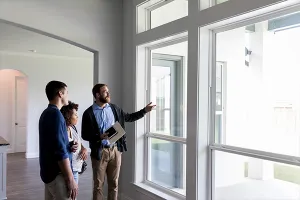A Georgia appellate court has considered a buyer's lawsuit against her real estate representative and the listing broker concerning their alleged failure to help her discover a gas leak in the house she purchased.
Frances Resnick ("Buyer") decided to move to Augusta, Georgia from Toronto, Canada. She entered into an "Exclusive Buyer Brokerage" agreement with Meybohm Realty, Inc. ("Meybohm"). Jackie Andrews ("Buyer's Representative") was the Meybohm representative assigned to the Buyer, and the Buyer's Representative took the Buyer to a home ("Home") listed for sale with Evanlyn Bennett ("Bennett") of Blanchard & Calhoun Real Estate Company ("Listing Brokerage"). Bennett was present during the Buyer's visit. The Buyer noticed a few problems with the home and also a "very heavy odor". The Buyer inquired about the odor and she was allegedly told by the real estate licensees that the house had some dampness and needed a drain.
The Buyer eventually purchased the Home. The purchase and sale agreement contained a clause stating that "[n]o representation, promise, or inducement not included in the Agreement shall be binding upon any party hereto" ("Merger Clause"). Meybohm and the Listing Brokerage signed the agreement. The Buyer's representative also recommended an inspector to the Buyer. The inspector found a few problems with the home, but did not note any problems with the home's fireplace. The Buyer could not attend the closing, and so gave her nephew power of attorney to attend the closing in her place. The nephew received the inspection report prior to closing, and arranged to have the noted items in the inspection report repaired.
Following the closing, the Buyer spent her first night in her new home. After she turned on the stove to make tea, she reported that the entire kitchen started shaking and she heard a loud "rumbling". Upon entering the living room, a flying lamp knocked her into the fireplace and she also saw other furniture flying around the living room. The Buyer testified that a subsequent investigation discovered that the explosion in her home was started by a gas leak in the fireplace. The Buyer brought a lawsuit against Meybohm and the Listing Brokerage claiming that they had misrepresented the condition of the house, had concealed evidence of the gas leak, and caused her to pay an inflated price for the property. The trial court entered judgment in favor of the real estate professionals, and the Buyer appealed.
The Court of Appeals of Georgia affirmed the trial court. The court considered the Buyer's arguments that the real estate professionals had breached a duty to her in the following ways: first, misrepresenting the odor in the house; second, concealing the cause of the odor; and finally, failing to investigate the odor's cause.
The trial court had rejected her misrepresentation allegations because the Merger Clause barred her reliance upon any representations made by the real estate professionals. The court agreed, ruling that the misrepresentation claims were barred because she could not claim reliance on any misrepresentations, due to the Merger Clause.
Next, the court considered the Buyer's allegations that the real estate professionals concealed a known defect, namely the gas leak. The Buyer's Representative and Bennett both testified that they had no knowledge that there was problem with the property's gas lines, and there was no evidence offered by the Buyer to contradict these claims, as there was nothing about problems with the gas line in the seller's disclosure statement. Indeed, the Buyer herself testified that the odor in the house had smelled like something decaying, and the Buyer's inspector had not discovered the gas leak. Based on all of this, the court determined that the evidence did not support the concealment allegations and so the ruling of the trial court in favor of the real estate professional was affirmed.
The court also considered the Buyer's "duty to investigate" allegations against the real estate professionals. The court again stated that the evidence did not show that the real estate professional had any knowledge of problems with the gas lines, and further that the Buyer testified that both the Buyer's Representative and Bennett had recommended she hire an inspector to discover any problems with the property. Therefore, the court determined that the real estate professionals did not breach any duty owed to the Buyer.
Finally, the court considered the remaining allegation made against Meybohm and the Buyer's Representative related to the offered price. The Buyer claimed that the Buyer's Representative had told her that she would not be able to purchase the home for anything less than a full price offer because the seller had already received a few offers. However, the Buyer offered no evidence to support her claims that the Buyer's Representative misled her or that the seller would have accepted a lower offer. The Buyer also did not offer any evidence that the Buyer's Representative had not exercised ordinary care in representing her. Therefore, the court dismissed these allegations as well.
Resnick v. Meybohm Realty, Inc., 604 S.E.2d 536 (Ga. Ct. App. 2004).








